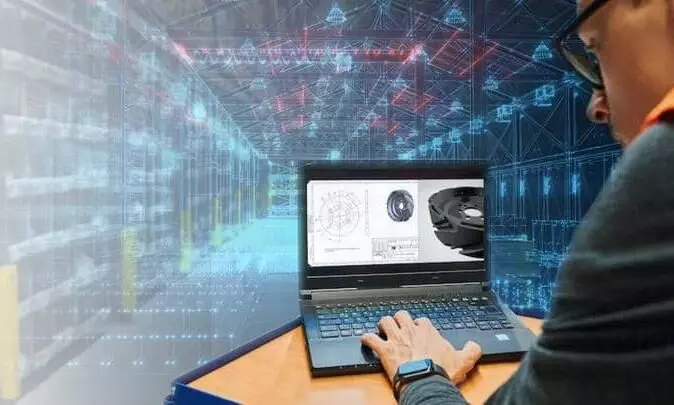
DB Schenker will now 3D print spare parts from the cloud
We want to shorten distances and at the same time keep products available faster and cheaper: CEO Jochen Thewes

(Photo: Deutsche Bahn AG)
DB Schenker has become the first global logistics provider to offer spare parts delivery via 3D printing, Jochen Thewes, CEO, DB Schenker announced at the first product show for the 150-year old organisation.
The virtual warehouse lowers delivery costs, shortens delivery times, and protects the environment. "This exemplifies what the logistics of the future can do for customers. The aim is to avoid unnecessary warehousing and to make supply chains even more stable and flexible," says Thewes.
In the face of increasing challenges in global logistics, digital innovations such as spare parts deliveries via 3D printing create real added value for customers in many areas. "We want to shorten distances and at the same time keep products available faster and cheaper. To achieve this, we are fully committed to digital innovations," Thewes said.
DB Schenker has already successfully tested the virtual warehouse, designed for customers from the mechanical engineering, automotive, and rail transport markets, the statement added. "Parts such as handles, cladding, and housings were produced on demand close to the customer. Without pre-production and storage, on-demand production reduces capital commitment costs. The new Schenker service with a virtual warehouse is now being offered to a wide range of customers worldwide."
DB Schenker collaborates closely with Deutsche Bahn, which already has experience in 3D printing with 80,000 parts manufactured from various materials and technologies. "According to our findings, up to 10 percent of companies' inventories can be manufactured on site," says Thewes. Spare parts that are needed relatively infrequently and parts that have to be stored in large numbers due to high minimum purchase quantities are particularly suitable for 3D printing. The virtual storage of the components is done by the safe upload of the 3D blueprints in the cloud.
In addition to the new "On-Demand Production", DB Schenker also presented other innovations in Frankfurt including the "Digital Control Tower" of land transport, which makes 9,000 consolidated transports across Europe traceable in real-time every day. DB Schenker's "Intercontinental Supply Chain Solutions" in air and ocean freight use artificial intelligence, real-time data, and interactive information platforms to make customers' supply chains more resilient and sustainable. In warehousing, DB Schenker relies on sensor technology to ensure the employees' healthcare during the pandemic, and inspections via data glasses to avoid travel and transport expenses.

